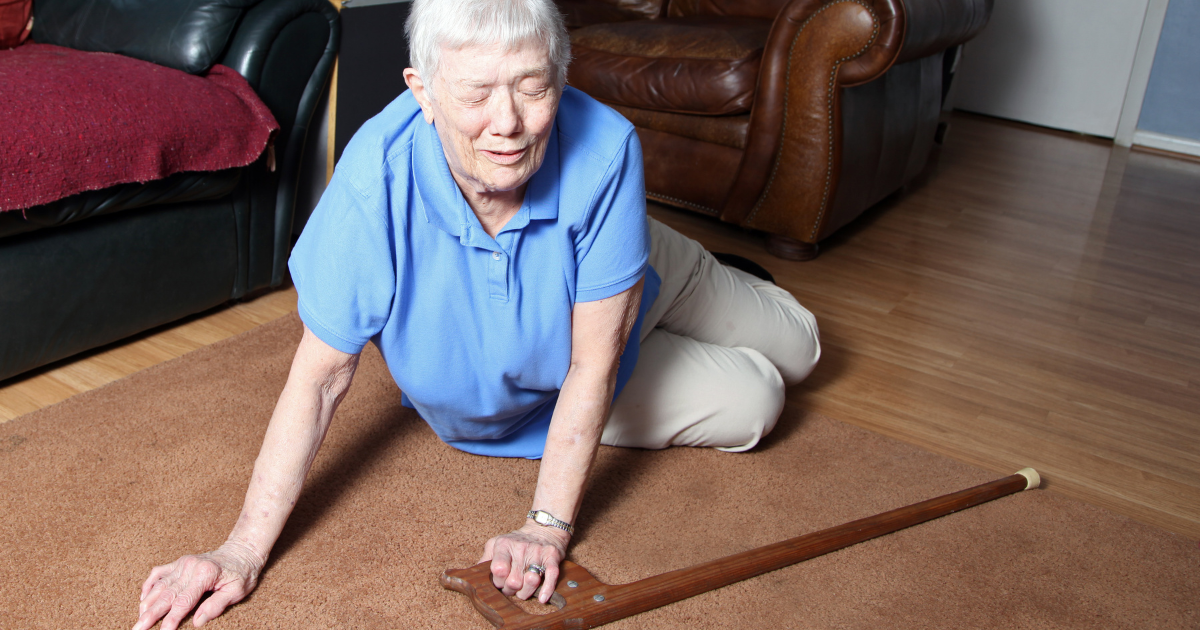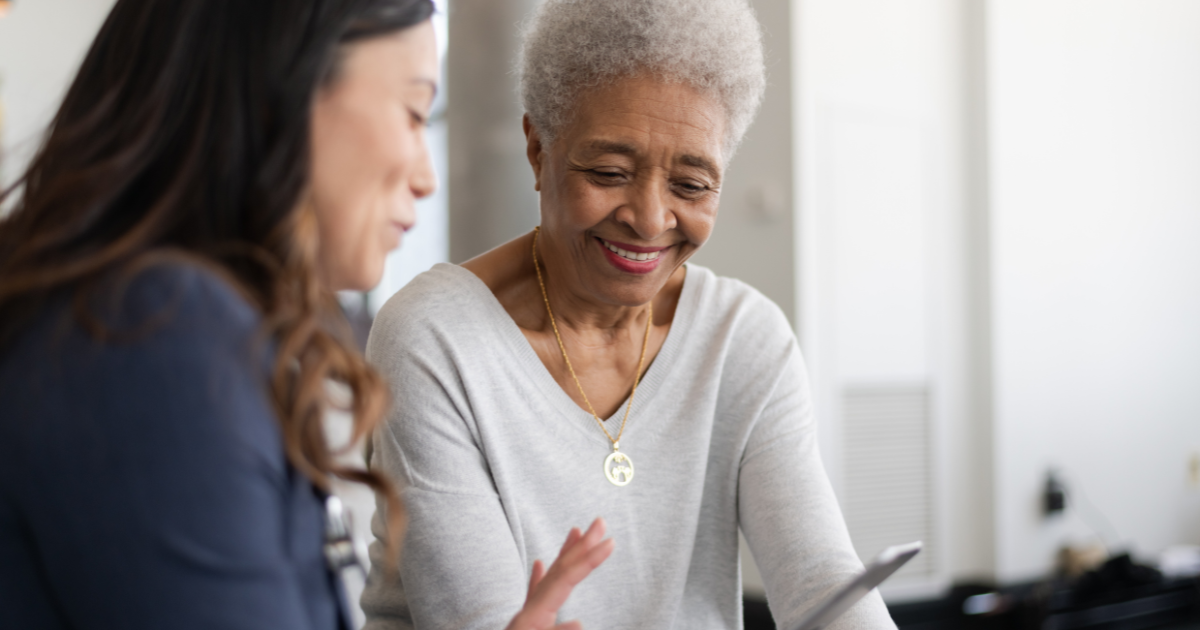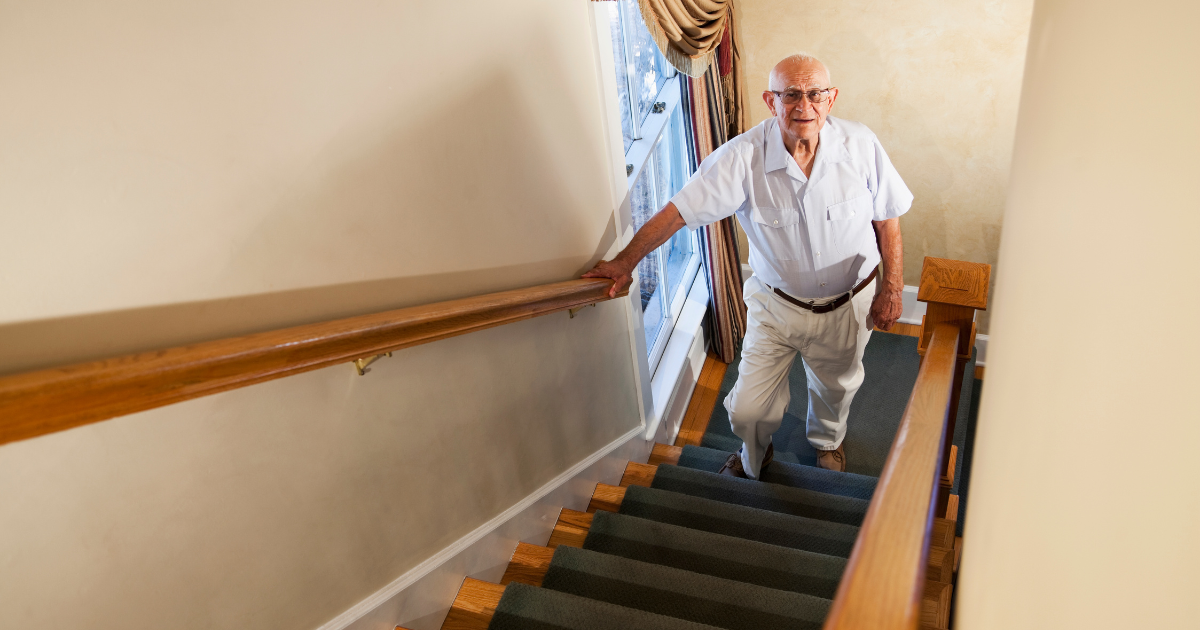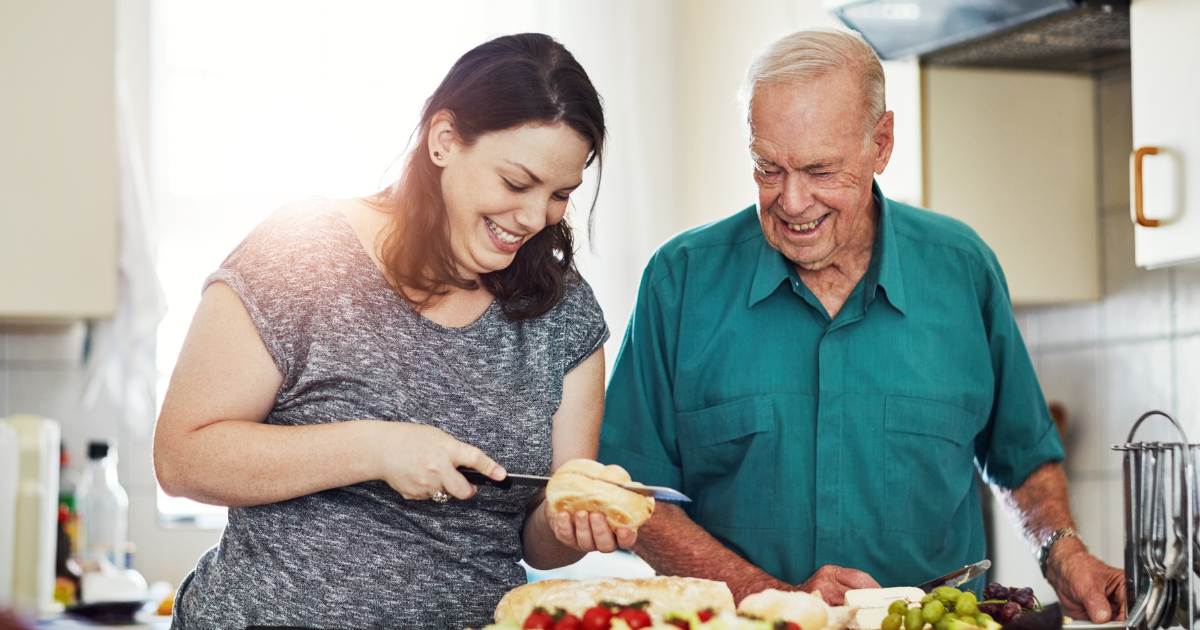Falling is one of the biggest fears for older adults, and for good reason. Each year, millions of Americans aged 65+ are hurt in falls, resulting in fractured hips, bruises, and head contusions. Sadly, some victims never fully recover from their injuries, while others lose their independence permanently as a result. As a concerned family member, helping aging loved ones minimize their risk of falling must be a priority. Following these fall risk safety tips will help ensure that your senior doesn’t become another fall-related statistic.
Why Are Seniors More Fall-Prone?
According to the National Council on Aging (NCOA), accidental trips and falls are the leading cause of fatal and non-fatal injuries for those aged 65+ each year.
Older adults are more fall-prone for reasons that include:
- Vision changes
- Weakened bones and muscles
- Certain medications that cause drowsiness
- Loss of balance, joint flexibility, and coordination
- Chronic health conditions such as heart disease, arthritis, or diabetes
- Dementia or Alzheimer’s
A fear of falling also prevents many seniors from staying active, which can significantly impact their quality of life and ability to live independently.
What Can You Do to Help?
Since your senior is more likely to suffer an injurious fall at home, that’s a great place to start. Taking these steps will help minimize the likelihood of emergency department visits:
Share your concerns
If you’ve noticed that your loved one lacks confidence while getting around – for instance, grabbing onto objects for balance – sit down and respectfully share your concerns. Ask them if they are afraid of falling – and why – and then provide reassurance that you’re there to help.
Inspect the home
Once you have their permission, walk around your senior’s home, and eliminate trip hazards like furniture, throw rugs, and electrical cords. If they own a pet, store any supplies safely away from foot traffic areas.
Your home safety assessment should also cover:
Lighting
Increase the lighting around the home, especially in the hallways and above the stairs. Also, be sure that the path from their bedroom to the bathroom is well-illuminated in case they get up in the middle of the night.
Bathroom
Home bathrooms are dangerous environments for seniors. Keep yours safer by installing grab bars near the toilet and in the tub/shower. It’s also a good idea to install a walk-in shower equipped with a shower chair and hand-held wand. Place non-skid strips inside the tub and remove any area rugs or footstools.
Stairways
All steps and stairways should be well-lit, with handrails on both sides and highlighted with fluorescent tape on the top and bottom steps.
Get their balance tested
Convince your senior to get their balance tested by a doctor or physical therapist. If they fail the test, the healthcare professional can identify potential causes, such as medications or a chronic health condition.
Based on the outcome of the balance assessment, it might be time for your loved one to start using an assistive device like a cane or walker. Use this opportunity to also discuss the importance of staying off ladders and stepstools.
Schedule an eye exam
As the human eye ages, its ability to detect trip hazards decreases. Schedule a comprehensive eye exam for your senior, as a new set of prescription lenses may be all that’s needed. You’ll need to take special precautions if your loved one wears glasses with tint-changing or bifocal lenses.
Encourage exercise
If their mobility is otherwise good, encourage your senior to participate in low-impact workouts for at least 150 minutes per week. Regular exercise will strengthen their core muscles, improve balance, and boost self-confidence – all of which will help prevent falls!
An Extended Family in Your Loved One’s Home
Another reliable way to keep aging loved ones from experiencing an injurious fall is by hiring them a “personal assistant.” Senior1Care is your trusted partner in providing quality, compassionate home care services to seniors living in Fishers, Brownsburg, Avon, Carmel, and the greater Indianapolis area. Our experienced caregivers are trained to deliver professional, reliable care in the same respectful and friendly manner that they would treat their own family members.
At Senior1Care, we understand that having a caregiver in your loved one’s home is a decision that requires trust. Our goal is to build relationships with clients by listening to their needs and providing the highest level of quality care possible. We are committed to helping your loved ones maintain their well-being, independence, and comfort. To learn more about our flexible caregiving options or schedule a FREE assessment for a senior in the greater Indianapolis, IN, area, visit us by clicking here now.





